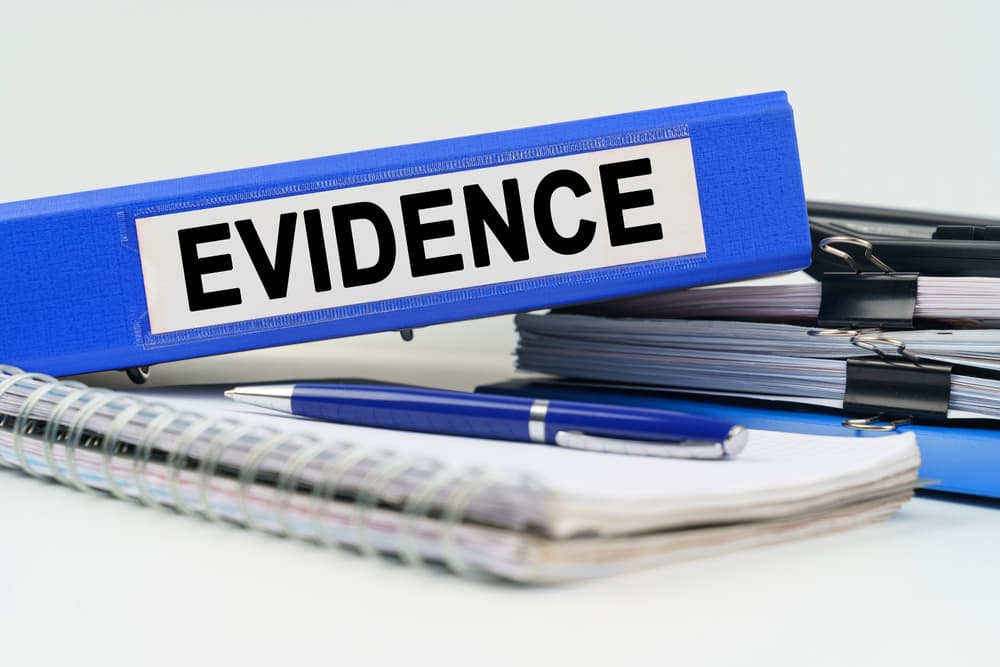Calculating Compensation in Florida Car Accident Cases
There are many reasons people who get hurt in car wrecks that aren’t their fault need the help of a car accident attorney. These cases are very complicated, and one of the most significant complications is calculating how much a victim deserves. This article will outline some of the ways lawyers do precisely that. You should never attempt to calculate your own damages, as most injury victims grossly underestimate the compensation they deserve.
Navigating the Aftermath of a Wreck

A car accident is often more than a minor fender-bender. It’s a violent collision resulting in severe injuries and tragedies. However, even a seemingly minor crash can result in surprisingly serious injuries and the need for compensation.
The typical car wreck occurs due to negligence. The at-fault driver makes a mistake that leads to an accident. The victim of negligence has the right to seek compensation from the negligent driver’s insurance company.
However, compensation has many facets, including tangible and intangible losses. These losses, known as “damages,” are the financial costs of a wreck. If someone suffers a severe injury, their damages can run into the hundreds of thousands of dollars – and possibly even more.
Florida law allows victims to file lawsuits against those who caused their harm, but they must know how much to demand in their claim. A skilled car accident attorney can accurately calculate a victim’s tangible and intangible damages. As callous as this may sound, they can “put a price tag” on a victim’s suffering. But doing so is critical to ensuring victims get the money they deserve and hold negligent drivers accountable.
Determining Liability
Even though an accident victim is entitled to compensation, a car accident lawyer must first gather evidence to show the other driver is to blame. Determining liability is the linchpin that holds the entire structure of a compensation claim together.
Car accident attorneys investigate car wrecks to determine blame. They meticulously piece together the puzzle of events leading to the collision. Lawyers carefully scrutinize every shred of evidence, such as witness statements, police reports, evidence gathered at the accident scene, and much more.
Investigating a motor vehicle accident is somewhat like reconstructing a story. A skilled car accident lawyer can look at fresh skid marks, shattered glass, and other physical evidence to determine how the accident happened.
Other Types of Evidence
A car accident attorney can also obtain evidence not available to non-lawyers. For example, they can request footage from nearby surveillance cameras that might have accident footage. If it appears the at-fault driver was texting or talking on their smartphone, a lawyer can get their phone records.
Car accident lawyers look at all the information they gather to construct the case narrative. They use this proof to assign blame and lay the foundation for their client’s compensation claim. The stronger the narrative, the better the chances the victim will obtain maximum compensation.
Not all car accident attorneys have the combination of legal acumen and investigative skills needed to collect evidence. You must carefully consider your choice of legal representative, and don’t be afraid to ask questions.
Types of Compensation Accident Victims Can Pursue
Once the attorney completes the investigation and determines liability, they calculate the victim’s damages. As you learned earlier, damages can be tangible or intangible. These are also known as economic or non-economic damages. The following is a brief look at some examples.
Economic Damages
These are tangible damages supported by evidence such as medical bills, pay stubs, and repair invoices. They include the following:
- Medical expenses – These are a cornerstone of economic damages, including hospital bills, medications, etc. Your car accident lawyer will work to obtain compensation for your present-day medical expenses as well as future expenses. You may, for instance, need physical therapy, a wheelchair, or home accommodations as you recover. The at-fault driver should be responsible for covering those expenses, not you.
- Lost income and future lost earning capacity – If you’re severely injured, you might be away from your job for an extended time. You’ll eventually lose income because you don’t have any sick days or vacation time. If you’re incapacitated long enough, you might not ever return to work. Or, you might have to take a lower-paying position. A car accident lawyer will try to recover compensation for your lost money.
- Property damage – Not only does property damage include your vehicle, but also any possessions destroyed in the wreck.
Non-Economic Damages
Intangible or non-economic damages are more challenging to prove. The reason is it’s difficult to put a price tag on the mental and emotional consequences of a car accident. These consequences include:
- Pain and suffering – A severe injury, of course, is painful. Some injuries are excruciating. An experienced car accident lawyer can accurately calculate your pain and suffering and work to get the money you have coming for the discomfort the other driver’s negligence forced you to endure.
- Emotional distress – A car wreck can profoundly impact a victim mentally as well as physically. You might have nightmares about the accident, or you’re scared to get in a car. Compensation for emotional distress addresses conditions such as depression, anxiety, and post-traumatic stress disorder stemming from the terrible event.
- Lost quality of life – You might be unable to enjoy your favorite activities, such as playing sports, boating, hiking, or simply walking on the beach or around your neighborhood. The court may award compensation for lost quality of life damages if you’ve lost the ability to participate in hobbies and activities that brought joy and fulfillment.
Documentation and Evidence

We can’t overstate the importance of evidence to your case. You can’t recover the above damages without proof you weren’t at fault. Detailed records of the accident scene, injuries sustained, and subsequent medical treatments provide a critical foundation for a compelling case. This documentation establishes the sequence of events and serves as a crucial reference point for demonstrating the impact on the injured party’s life.
You must retain all documents related to your accident, starting with your medical bills. Keep every bill, whether it relates to your emergency care, hospitalization, surgery, medicine, and everything else. Put all of these documents in a safe place.
Meticulous medical treatment documentation will make your case stronger.
You should also keep documents related to your job, specifically pay stubs. Your pay stubs will provide evidence of the money you’re losing because you can’t work. Also, keep the mechanic’s estimates for repairing your vehicle and receipts of any personal items lost in the wreck.
Why You Need a Car Accident Attorney
Can you imagine the time it will take to research the value of your economic damages? Do you even know when to start when trying to calculate your non-economic damages? If you’re going to get the money you deserve, your only chance to do so will be to hire a car accident lawyer. These are just some ways a skilled attorney will help your case.
Calculating Damages
While any car accident attorney can calculate economic damages, it takes a very skilled lawyer to determine how much your intangible damages are worth. Only experienced lawyers know how to put a dollar amount on pain and suffering, emotional distress, and lost quality of life.
Navigating the Complexities of a Car Accident Claim
Any personal injury accident can quickly become complicated. A car accident can be incredibly complex because multiple liable parties can exist. For example, the at-fault driver might have been speeding but couldn’t stop due to faulty brakes. Not only can you sue the driver’s insurance company, but you can also take action against the brake manufacturer.
Negotiating With Insurance Companies
The negligent driver’s insurer isn’t going to simply cut a check for what you deserve. They’re going to fight to pay you as little as possible. If they know you don’t have legal representation, they’ll do all they can to avoid paying you a dime. Insurers have high-powered legal teams to keep you from obtaining the money you have coming.
However, if you have a seasoned car accident lawyer on your side, you can level the playing field. Your attorney will not only know the value of your case, but they’ll also have the facts to back up their compensation demands. Since they’ll have the truth on your side, they’ll have a much better chance of convincing the insurer not to put up a fight.
You probably don’t want to go to court. The insurance company definitely doesn’t want to go to trial. That’s why about 95 percent of personal injury cases end in a settlement. But if you don’t have a car accident lawyer, the insurer will offer a settlement that won’t come close to paying for your expenses. You’ll be responsible for covering the rest.
Fighting for Your Rights
However, insurance companies will sometimes take a case to court rather than do what’s right. Even though a trial occurs in less than five percent of car accident cases, you must prepare for the possibility.
That’s exactly what your attorney will do.
If the insurer refuses to make a fair offer, your lawyer will be ready to fight for your rights in a courtroom. Not only will they have evidence to back your argument, but they can also bring in expert witnesses to strengthen your case even further.
Choosing the Right Car Accident Lawyer
As stated earlier, not every car accident attorney knows how to calculate compensation in a Florida car accident case accurately. It will help to do your due diligence to find the best one. Here are a few characteristics you’ll want in your lawyer.
Experience in Personal Injury Law
Selecting the right car accident lawyer will be one of the most crucial decisions you ever make. Choosing an attorney with experience will be critical to your chances of success. Seasoned lawyers know all of the complexities involved in personal injury litigation and how to anticipate and overcome unexpected challenges. Just as essential, they know what a client’s case is worth once they have all the facts.
Experience Relevant to the Case
Each car accident case is unique, often presenting distinct challenges. Choosing an attorney with experience relevant to the specific circumstances of your case will increase your chances of success. Whether it involves complexities related to liability determination, medical costs, or other case-specific elements, having a car accident attorney with the right experience can be a game-changer.
A Proven Track Record
A personal injury attorney with a proven track record of successful cases instills confidence. This track record is a testament to the attorney’s ability to navigate the legal landscape effectively, secure fair compensation for their clients, and deliver positive outcomes.
Look at the websites of different lawyers you’re considering and find their results in cases similar to yours. Ask for references from former clients, and reach out to learn about their experiences.
Commitment
The best car accident attorney won’t be just a legal representative. They’ll also be a partner in pursuing justice. Their commitment to your cause and diligence in investigating, building, and presenting a compelling case is essential. This partnership is founded on trust and the shared goal of achieving the best possible outcome.
When you speak to different attorneys, please pay close attention to how they treat you. Ask if they’ll be available to answer your questions and address your concerns. Also, find out if that specific car accident lawyer will handle your case or if another attorney will do so. That other attorney might not have the experience you need.
Speak With a Skilled Car Accident Lawyer as Soon as Possible

David I. Fuchs, Florida Car Accident Attorney
It’s understandable if you don’t feel up to researching attorneys. You’ve just gone through a traumatic event, you’re in pain, and you’re also worried about your expenses piling up. But you must find a car accident lawyer as soon as you can.
The biggest reason is that your attorney needs to investigate the accident immediately so they can gather critical evidence before it disappears. The faster you hire legal representation, the better the chances you’ll obtain every dollar you have coming. Speak with a skilled personal injury lawyer to learn more.

